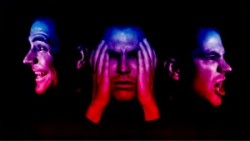Effects of Hallucinogens Your Friends Won’t Tell You About
Hallucinogens are best known for their ability to produce euphoric, “out-of-body” experiences. Unlike most other types of addictive drugs, the effects of hallucinogens cause users to experience mental breaks from reality.
According to the Institute for Substance Abuse Treatment Evaluation, these experiences result from profound distortions in sensory perception, altering a person’s perception of reality. While your friends may tell of amazing adventures had on hallucinogen “trips,” these drugs produce unpredictable effects, some of which may not be so pleasant.
Effects of Hallucinogens on the Body
Hallucinogens act as psychoactive substances, capable of interfering with, and over time, altering brain chemical pathways. Consequently, the effects of hallucinogens on the body stem from how these drugs impact brain chemical functions.
Hallucinogens specifically target serotonin and glutamine neurotransmitter pathways. With each dose, hallucinogens force brain cell sites to secrete unusually large amounts of neurotransmitter chemicals.
These effects can alter central nervous system processes in drastic ways. Bodily processes most affected include:
- Impulse control
- Motor coordination
- Sensory perceptions
- Emotional stasis
- Sexual impulses
The effects of hallucinogens on serotonin and glutamate outputs essentially distort a person’s sensory perceptions, which accounts for the vivid hallucinations experienced. For the most part, dosage amount determines how intense the drug’s effects will be.
Behavioral Effects of Hallucinogens

A ‘bad trip’ can involve hallucinations and aggressive behavior.
The effects of hallucinogens on brain function inevitably affect a person’s overall psychological stability. In general, any degree of chemical imbalance in the brain sets the stage for psychological dysfunction to take root.
According to Bryn Mawr College, the effects of hallucinogens are unpredictable with each successive use. At any given time, users may experience a “good trip” or a “bad trip.” A person’s expectations, mood and the environment all play into the type of “trip” he or she will have.
While good trips can bring on euphoric, even transcendent-type experiences, bad trips can be equally horrifying. Behaviors exhibited during bad trips include:
- Violent or rage-filled behaviors
- Panic attacks
- Psychotic breaks
- Inability to communicate with others
Long-Term Aftereffects of Hallucinogens
With ongoing drug use, hallucinogens can have lasting, long-term effects on overall brain function. After a certain point, hallucinogen effects reconfigure brain chemical pathways. Since neurotransmitter chemicals act as the brain’s communication system, these effects change how the brain works.
Before long, users start to experiences distorted sensory perceptions after the drug “high” wears off. These distortions may take the form of:
- Hearing imaginary sounds
- Seeing imaginary images
- Feeling sensations along the skin’s surface
- Flashback episodes from past drug highs
Depending on how long a person has used hallucinogens, he or she can experience these effects years after stopping drug use.
Addiction
Over time, the brain develops a tolerance to the effects of hallucinogens with ongoing use. An increase in tolerance levels indicates a certain degree of brain damage has taken place.
According to the U. S. Drug Enforcement Administration, increasing tolerance levels also play into the abuse-addiction cycle. Once addicted, drug cravings dictate a person’s priorities, motivations and drive throughout any given day. At this point, hallucinogen effects have warped the brain’s reward system and altered his or her overall psychological make-up.
- Related Articles
 How Can I Avoid a Bad Trip? -
Your environment and the people you're with play a big part in the experience you'll have on hallucinogens.
How Can I Avoid a Bad Trip? -
Your environment and the people you're with play a big part in the experience you'll have on hallucinogens.  10 Reasons to Choose Treatment If you’re Using Synthetic Hallucinogens -
Treatment can provide the skills and resources necessary to overcome the desire to use hallucinogens.
10 Reasons to Choose Treatment If you’re Using Synthetic Hallucinogens -
Treatment can provide the skills and resources necessary to overcome the desire to use hallucinogens.  Ketamine Dependence & the Need for Drug Treatment -
The symptoms of Ketamine dependence are hard to miss.
Ketamine Dependence & the Need for Drug Treatment -
The symptoms of Ketamine dependence are hard to miss.  8 Strange Effects You Might Suffer From While Using Hallucinogens -
Hallucinations aren't the only thing you'll likely experience while under the influence of hallucinogens.
8 Strange Effects You Might Suffer From While Using Hallucinogens -
Hallucinations aren't the only thing you'll likely experience while under the influence of hallucinogens.  How Long Will Treatment for a Bad Trip Take? -
A bad trip can lead to devastating disorders that require long term treatment, such as hallucinogen persisting perception disorder and persistent psychosis.
How Long Will Treatment for a Bad Trip Take? -
A bad trip can lead to devastating disorders that require long term treatment, such as hallucinogen persisting perception disorder and persistent psychosis.